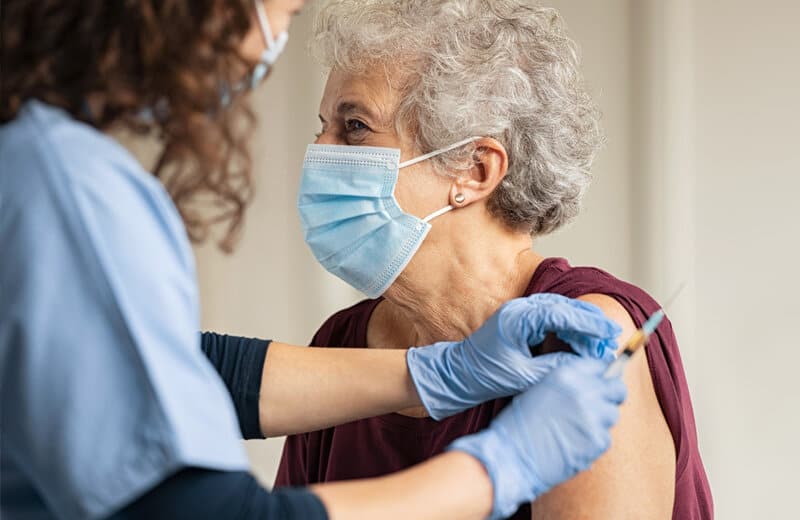A new Understanding Coronavirus in America Study found that those who received a COVID-19 vaccine when the shots were first made available experienced reduced anxiety after just one dose.
While the vaccine’s expected physical benefits — including protection from infection, life-threatening symptoms and hospitalization — are obvious, the resulting mental health benefits have received less consideration until now.
Who’s asking?
Researchers from the Center for Economic and Social Research (CESR) at the USC Dornsife College of Letters, Arts and Sciences have previously looked at the mental health effects of the pandemic. When beginning this study, they hypothesized that mental distress would decrease among those vaccinated against COVID-19. The study results suggest they were right.
Details of the study: The research, published recently in the journal PLOS One, compared changes in mental health of people vaccinated for COVID-19 and people who were unvaccinated.
- About 8,000 adult residents of the United States were surveyed for a year during the pandemic, from March 2020 through March 2021.
- The study tracked participants’ mental health starting before vaccines were made available to set a baseline and then looked for changes after vaccines were available.
- To measure depression and anxiety levels, the researchers asked study participants a standard series of four questions known as the Patient Health Questionnaire-4, or PHQ-4.
What did they learn?
The participants’ answers showed that vaccinated people were significantly more likely to experience a reduction in mental distress.
- Participants receiving a COVID-19 vaccine experienced a 15% reduction in the likelihood of feeling severely depressed and a 4% reduction in the likelihood of feeling at least mildly depressed.
What does it all mean?
Of the approximately 100 million adults who were vaccinated during this period (December 2020 to March 2021):
- About 1 million stopped experiencing mild mental distress.
- About 700 thousand stopped experiencing severe mental distress.
Bottom line: The findings suggest that the COVID-19 vaccine does more than protect your physical health — indirectly, it has significant mental health benefits, as well.
But there’s more: Francisco Perez-Arce, an economist and researcher at CESR and the study’s lead author, notes that the mental health benefits of vaccination may be even larger than what the study measured.
“We didn’t track changes in the mental health of study participants after their family, friends and others were vaccinated,” he said. “I think that’s likely to substantially increase the mental health value of vaccination campaigns.”
Next up
Perez-Arce suggests a number of questions to explore in future studies as the pandemic continues:
- For those who were vaccinated later in the pandemic, after vaccine eligibility expanded, how much did their anxiety change?
- Will booster shots affect mental health?
- How did the mental health of those who were vaccinated early change after they heard the news regarding breakthrough cases arising from the Delta variant?
About the survey
The Understanding Coronavirus in America Study is a bi-weekly tracking survey aimed at understanding the impacts of the pandemic and includes panelists from the Understanding America Study, a nationally representative longitudinal study of adult Americans 18 and older.
- Respondents answered surveys at regular intervals from March 2020 through March 2021 to allow tracking how people’s perceptions, behaviors and outcomes evolved.
- Variables measured included PHQ-4 scores and, beginning Dec. 23, 2020, vaccination status.
- The samples used for the current study consist of answers from just over 8,000 participants.
The data comprise more than 157,000 observations.

